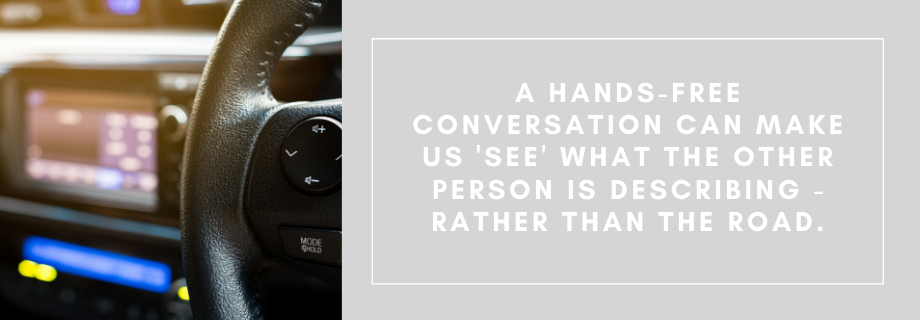The impact of in-car tech on the human brain
We’re all growing more and more reliant on our tech. Nearly a quarter of UK households now have a voice assistant like Amazon Echo or Google Home, and 41% plan on having one in the next few years. Smartphone use is at 75%, rising all the time.
It’s in our homes, in our pockets – and in our cars.
Driven to distraction
Just like Alexa or Siri holding our hands as we cook a new dish, many of us rely on in-car navigation. But satnav is just the beginning.
As we add infotainment and even safety technology to our vehicles, our concentration can be drawn away from the main event. Driving is an incredibly complex skill that demands a lot of our easily-distracted brains.
Experienced drivers do countless safety checks without even thinking about it, flicking their eyes to a hazard four cars ahead or using peripheral vision to track a child running along the pavement. This takes a lot of processing power, so anything that distracts us from the task lowers our ability to drive safely.
Entering the tunnel
Cognitive tunnelling is when our brains zone in on one thing at the cost of other functions. That’s a useful tool for many activities, but not if you’re distracted at the wheel.
An example of this is the supposedly ‘safe’ hands-free call. We think that just because we’re not physically holding the phone, it’s OK. But the science is scary.
What happens when you take a hands-free call:
- Your brain will prioritise interacting with someone. You’re making sure you don’t interrupt, reacting emotionally to their mood and handling hundreds of other complex social rules.
- If they start describing a scene to you, you’ll use vital brainpower to visualise that scene. So, while you’re picturing the cute thing the cat’s doing, you’re actually processing less of what your eyes are seeing.

The potential dangers of safety tech
There have been many amazing developments in safety technology over the last few years. Automatic braking, lane control and parking assistance can all make driving safer. With the exception of 2011, the UK has seen decreasing road fatalities every year since 2004.
BUT. Does this increase in automation and safety potentially lull us into a false sense of security? If you know your car will ‘save’ you, will you pay even less attention to the road?
Technology also often relies on back and white rules: this behaviour is safe and this behaviour is not. That means things like speed limits are either: you’re at the speed limit = safe or you’re over the speed limit = unsafe.
However – we all know that safety depends on the road conditions. 30mph might be legal, but that’s not the same as safe. If the weather’s appalling and it’s school hours, 30mph might be way too fast. A speed control system doesn’t know the difference.
The human brain is still the most powerful computer
With any technology, the way we use it is extremely important.
Advances in vehicle safety will keep helping us decrease road deaths, but we need to stay focused on safety ourselves. Our judgement and attention are what keeps safety tech safe.
Sources
Forecast of the smartphone user penetration rate in the United Kingdom (UK) from 2015 to 2022 – Mobile Marketing Magazine
Almost a quarter of UK households are home to a smart assistant device – Statista
Imagery-inducing distraction leads to cognitive tunnelling and deteriorated driving performance – Transportation Research Part F: Traffic Psychology and Behaviour
Annual road fatalities – GOV.UK
In-car tech: vital for our safety or a fatal distraction? – Independent